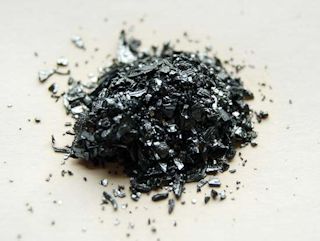|
Iodine is considered one of the body’s vital nutrients, responsible for regulating thyroid function, supporting a healthy metabolism, aiding in growth and development, and preventing certain chronic diseases like cancer. Unfortunately, many adults don’t consume enough iodine-rich foods and are deficient in iodine. Therefore, many suffer a range of negative health consequences as a result, known as iodine deficiency disorders (IDD).
Iodine is present throughout the body in just about every organ and tissue, needed by almost every bodily system to keep us alive and energized. For this reason, iodine deficiency poses many risks — an alarming thought considering that some sources suggest around 50 percent or more of the adult population in Western developed nations are iodine-deficient.
One of the most widespread symptoms of iodine deficiency? Thyroid disorders. Thyroid function relies on proper levels of iodine, so too much (or too little) can cause many serious health problems. The thyroid is one of the body’s master glands responsible for balancing hormones, and thyroid disruption caused partially by a diet low in iodine-rich foods can create such negative reactions as fatigue, weight gain or loss, hormone
imbalances,
mood changes, and much more.
Common signs of an iodine deficiency include:
Trouble producing saliva and properly digesting food
Swollen salivary glands and dry mouth
Skin problems, including dry skin
Poor concentration and difficulty retaining information
Muscle pains and weakness
Increased risk for thyroid disease
Increased risk for fibrosis and fibromyalgia
A higher risk for developmental problems in babies and children
Iodine deficiency and diets low in iodine-rich foods are associated with an increased risk for thyroid disease, but there are also potential thyroid and hormonal risks associated with taking too much iodine, especially from supplements that contain iodine in the form of iodide. Although it seems counterintuitive, research suggests that consuming more than the suggested amount per day is even associated with an increased risk for
thyroid disorders
as opposed to preventing them.
The Best Iodine-Rich Foods
Keep in mind that iodine levels vary greatly within a type of food depending on the conditions in which it was grown or produced. For example, because soil depletion is a concern for lowering iodine counts in foods, crops grown in depleted soils have lower levels of iodine than organically grown crops. Similarly, organic eggs are more likely to contain a higher level of nutrients conventionally produced versions.
Here are 12 of the best iodine foods, with percentages below based on the recommended dietary allowance for the average adult:
Seaweed/Dried Kelp — 1 whole sheet dried: 19 to 2,984 micrograms (amounts vary widely — anywhere from 11 % to 1,989 %)
Yogurt (organic, grass-fed and ideally raw) — 1 cup: 75 micrograms (50 % DV)
Raw Milk — 1 cup: 56 micrograms (37 % DV)
Eggs — 1 large: 24 micrograms (16 % DV)
Lima beans — 1 cup cooked: 16 micrograms (10 % DV)
Corn (organic) — 1/2 cup: 14 micrograms (9 % DV)
Prunes — 5 prunes: 13 micrograms (9 % DV)
Cheese (look for raw, unpasteurized) — 1 ounce: 12 micrograms (8 % DV)
Green peas — 1 cup cooked: 6 micrograms (4 % DV)
Bananas — 1 medium: 3 micrograms (2 % DV)
Kelp, beets, celery, lettuce, grapes, mushrooms, oranges.
DV is (Daily Value)
|

